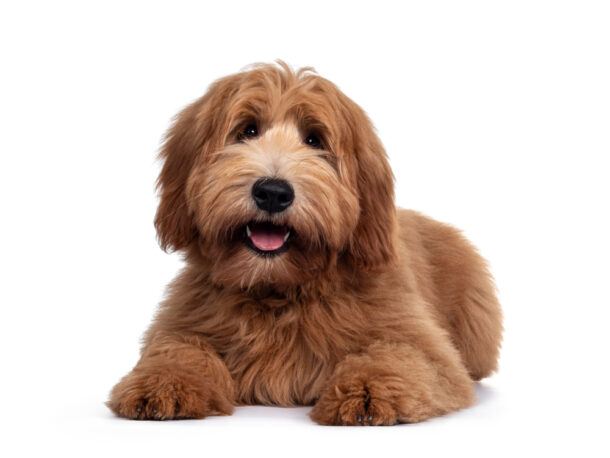LifeWithMyDogs is supported by our audience. When you purchase through one of our links, we may earn a small affiliate commission. As an Amazon Associate I earn from qualifying purchases. Your cost is not affected.
**********
The best way to whiten your dog’s coat begins with what you can do right at home. Like many pet parents, I’ve dedicated myself to ensuring that my furry friend’s white fur looks its absolute best. It’s been quite the journey, filled with highs and lows – from battling stubborn stains to perfecting grooming routines and even tweaking my dog’s diet. Along the way, I’ve discovered some invaluable practices and effective methods that have truly made a difference.
So, from one pet parent to another, achieving and maintaining a pristine white coat for your dog should be within reach with these techniques, remedies, and preventive tips. Tailor them according to your dog’s needs and you will surely go a long way in keeping their coat bright and beautiful
Expert Advice: Unlocking the Best Way to Whiten Your Dog’s Coat
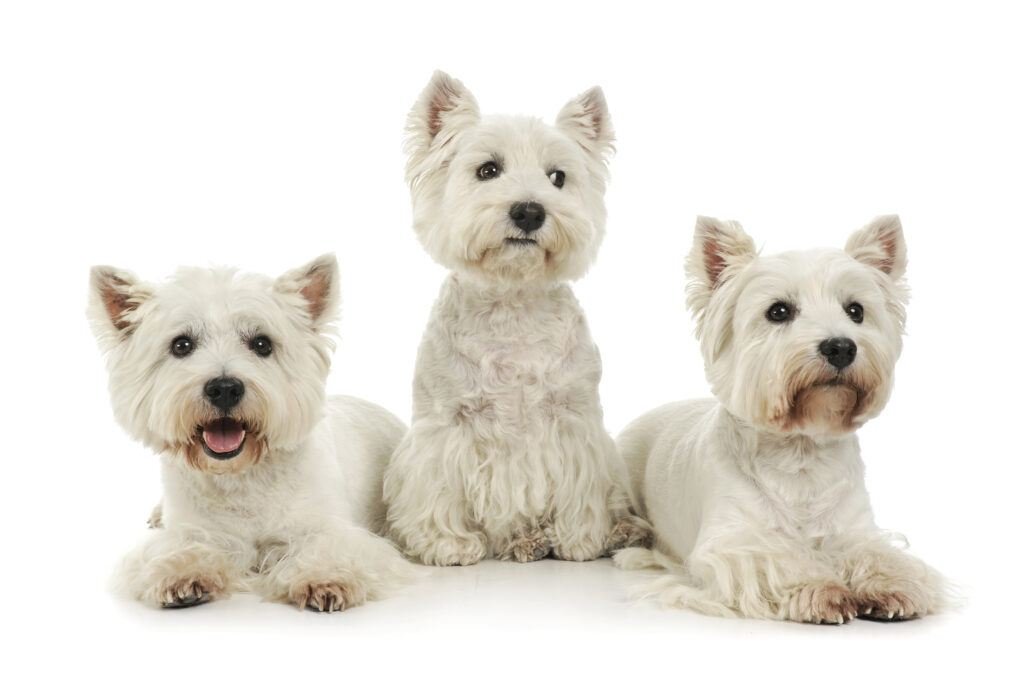
Maintaining the bright white coat of a dog is a common concern for many pet owners. They may notice that their furry friend’s fur can sometimes become dingy or yellowed.
Various factors, including diet and health, can contribute to the color and condition of a dog’s fur. However, specific techniques can enhance the brightness of a white coat. A holistic approach—combining proper nutrition, regular grooming, and the occasional use of specialized products—is often the most effective way to keep a dog’s white fur looking vibrant.
Finding the most suitable method to whiten a dog’s coat often revolves around regular grooming practices. These practices can remove surface dirt and prevent the build-up of substances that may lead to staining.
Alongside these practices, dietary adjustments can ensure your dog is receiving the right nutrients for a healthy coat from the inside out. And when further treatment is necessary, both home remedies and professional whitening treatments can be considered. Always remember to choose safe and suitable options for your pet’s specific needs.

Article Highlights
- Regular and appropriate grooming is crucial for maintaining a white coat.
- Dietary adjustments can promote coat health from within.
- Safe whitening treatments should be carefully selected for best results.
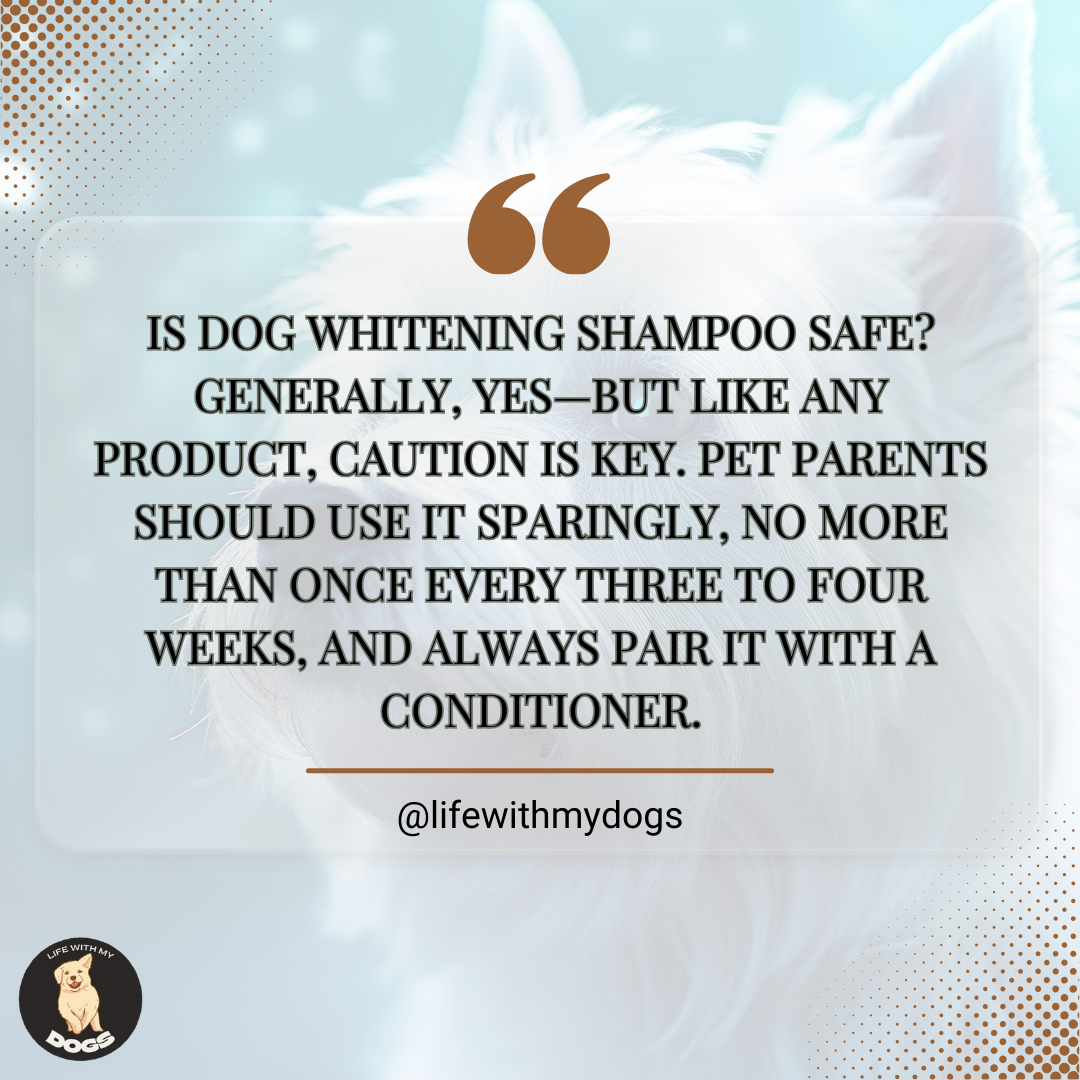
Understanding Canine Fur Health
Maintaining a white coat’s natural brilliance involves more than just surface cleaning. It’s essential to understand the science of your dog’s fur and the external factors that can affect its whiteness.
The Science Behind White Coats
Your dog’s white fur owes its color—or lack thereof—to the absence of melanin, a pigment found in the hair of humans and animals. This means that white coats can sometimes appear less vibrant due to the lack of this natural coloring agent. Consistent grooming is key to dealing with this lack of pigment and keeping the coat shining white.
Video Credit: @bluecollarden
Common Factors Affecting Coat Whiteness
Several external elements can lead to discoloration of your dog’s white fur:
- Environmental pollutants: Dust, dirt, and urban pollutants can cling to your dog’s fur, leading to a dingy appearance.
- Food and saliva stains: Bits of food and saliva can also stain the fur around the mouth and paws.
- Urine stains: Particularly in males, urine can cause yellowing around the belly area.
- Tear staining: The area under your dog’s eyes may acquire a rust-colored stain from tears.
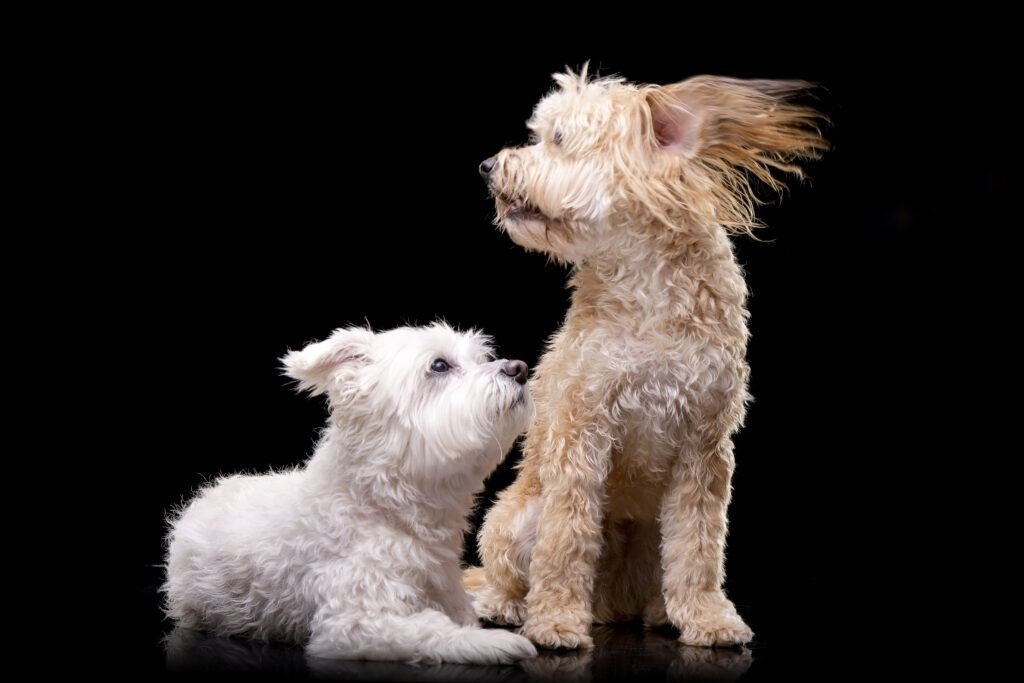
Routine care, such as wiping your dog down with a grooming spray or using specially formulated shampoos, can mitigate these effects and lighten stains.
Dietary Considerations
When aiming to brighten your dog’s white coat through diet, it’s essential to focus on high-quality nutrition and potentially beneficial supplements.

Nutrition for a Healthy White Coat
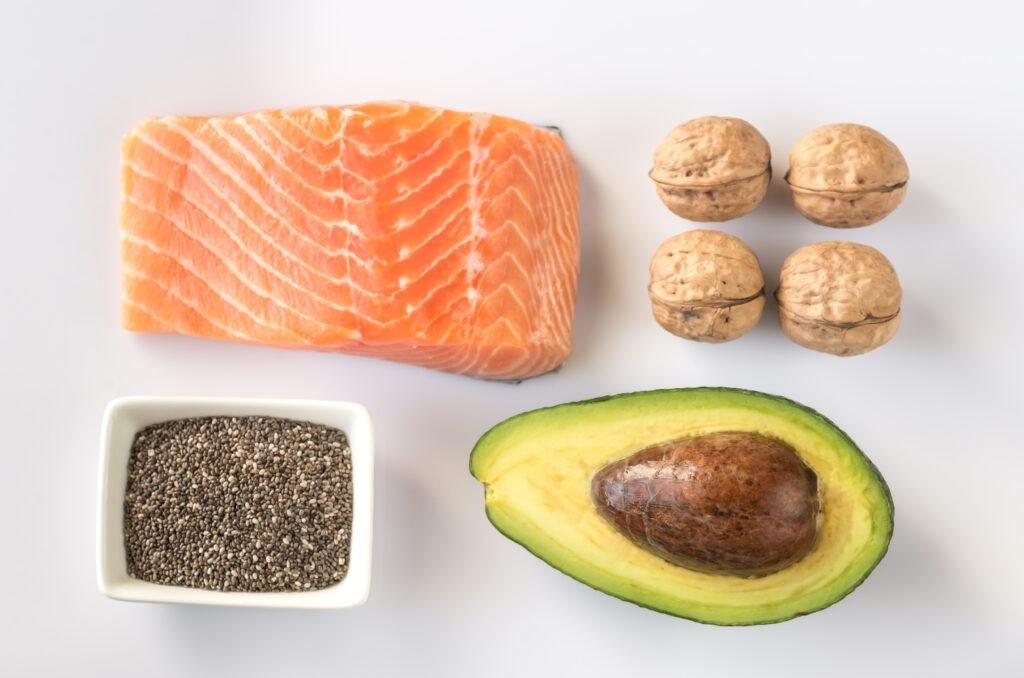
Your dog’s coat health is directly influenced by what they eat. To enhance your dog’s coat’s whiteness and overall shine, ensure their diet is rich in proteins and balanced with omega fatty acids. There are key nutrients that promote whiteness and shine.
Foods high in omega-3 and omega-6, like fish oil, can improve skin health, leading to a healthier, more lustrous coat. Always opt for dog food with named animal proteins as the first ingredient, and avoid those with excessive fillers or artificial additives.
Supplements to Enhance Coat Color
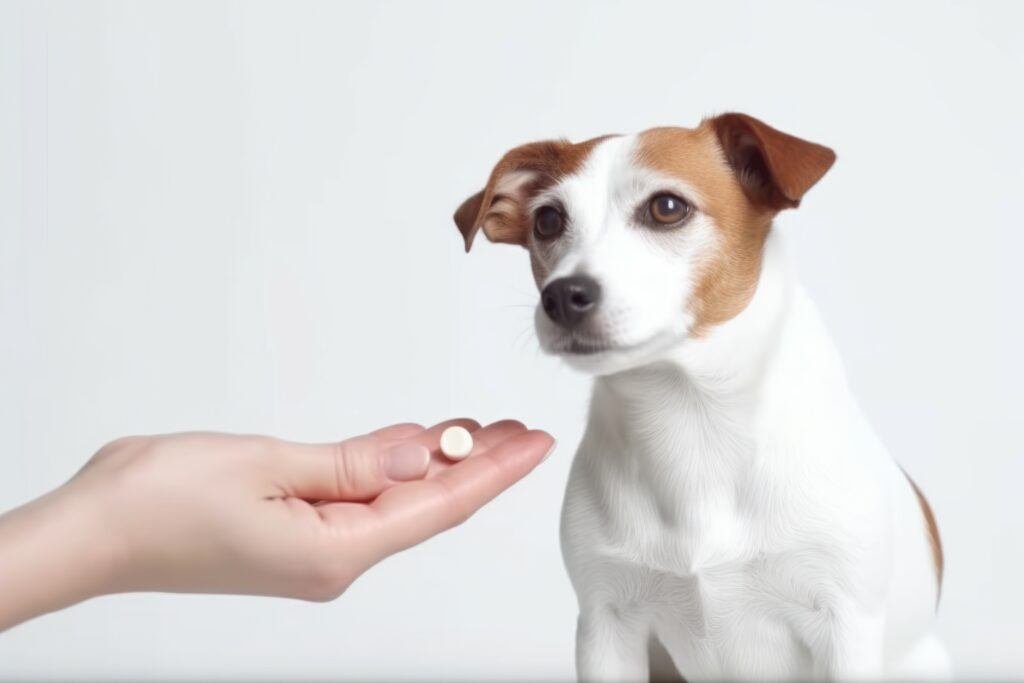
Certain supplements may aid in maintaining your dog’s white coat. Adding Zinc to your dog’s diet can help with skin and coat health. In some cases, a vitamin E supplement could provide antioxidant benefits to your dog’s skin and fur. Biotin supplements are also known to improve fur quality, but it’s crucial to consult with your vet before starting any supplement regimen to avoid potential over-supplementation and adverse effects.
Grooming Techniques for Whiter Coats
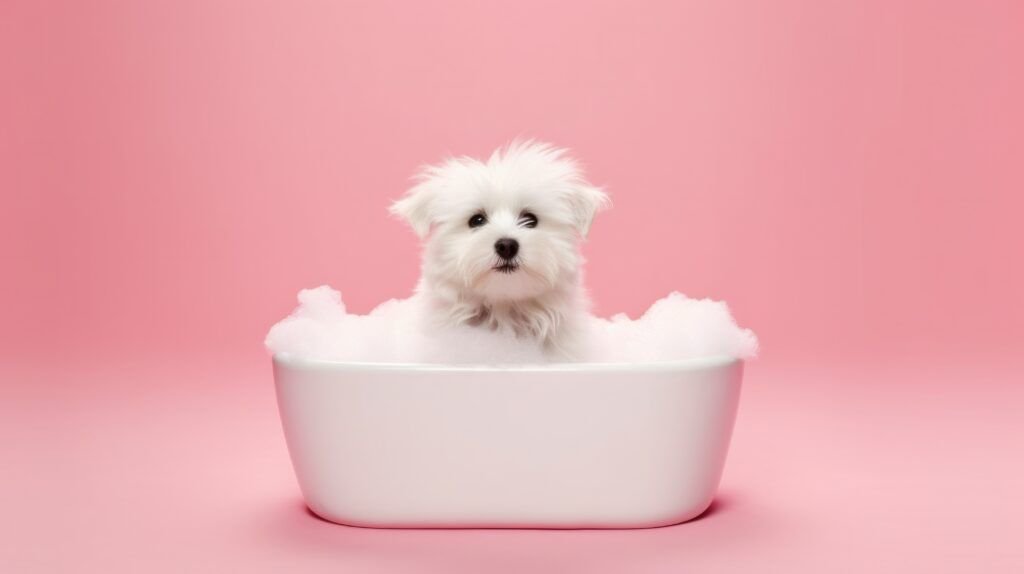
Maintaining a white coat requires specific grooming practices. A careful selection of shampoos and conditioners, along with dedicated bathing and brushing routines, play a pivotal role in keeping your dog’s fur bright and clean.
Choosing the Right Shampoo
For a radiant white coat, the shampoo you select should contain natural brighteners or optical enhancers. Avoid harsh chemicals that can damage your dog’s skin and fur.
Shampoos with pearlescent brighteners can add a brilliant sparkle, while those enriched with proteins may strengthen the fur.
Bathing Routines
When bathing your dog, consistency and technique matter. Use a shampoo designed specifically for white coats, and lather thoroughly to remove stains and discolorations.
Warm water helps to open the hair cuticles, allowing the shampoo to penetrate more effectively.
Brushing and Combing Strategies
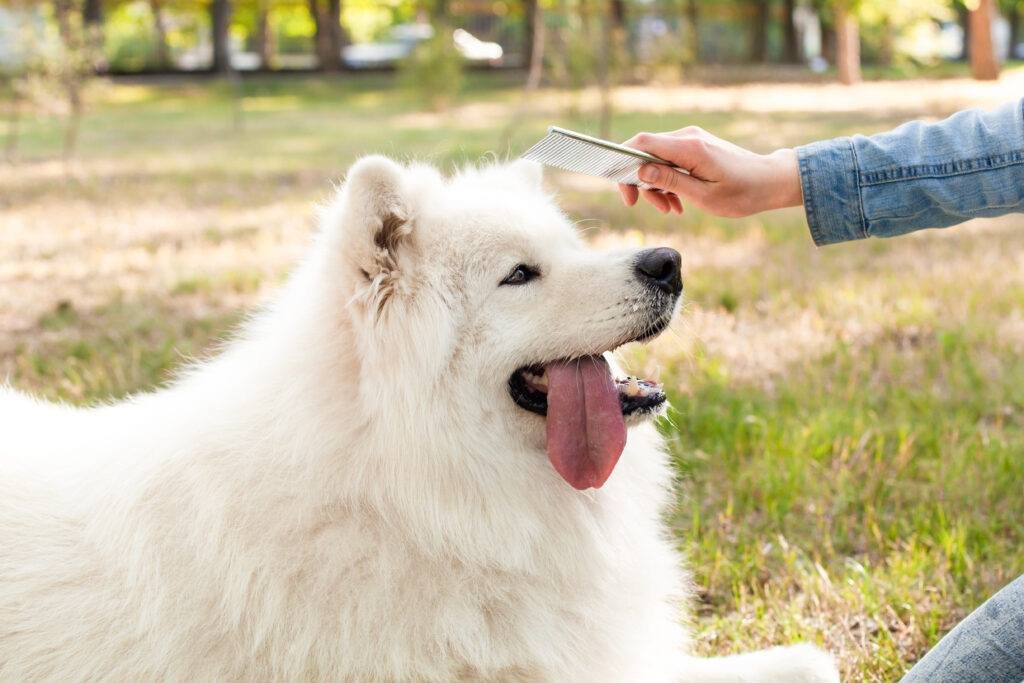
Regular brushing is crucial for a white coat’s appearance. Start at the head with a slicker brush and move towards the tail, detangling as you go. A thorough brushing and combing routine not only removes debris but also distributes natural oils, enhancing the coat’s natural whiteness.
Home Remedies for Whitening
Achieving a bright, white coat for your dog doesn’t require harsh chemicals. Common household items can be both safe and effective for dog fur whitening.
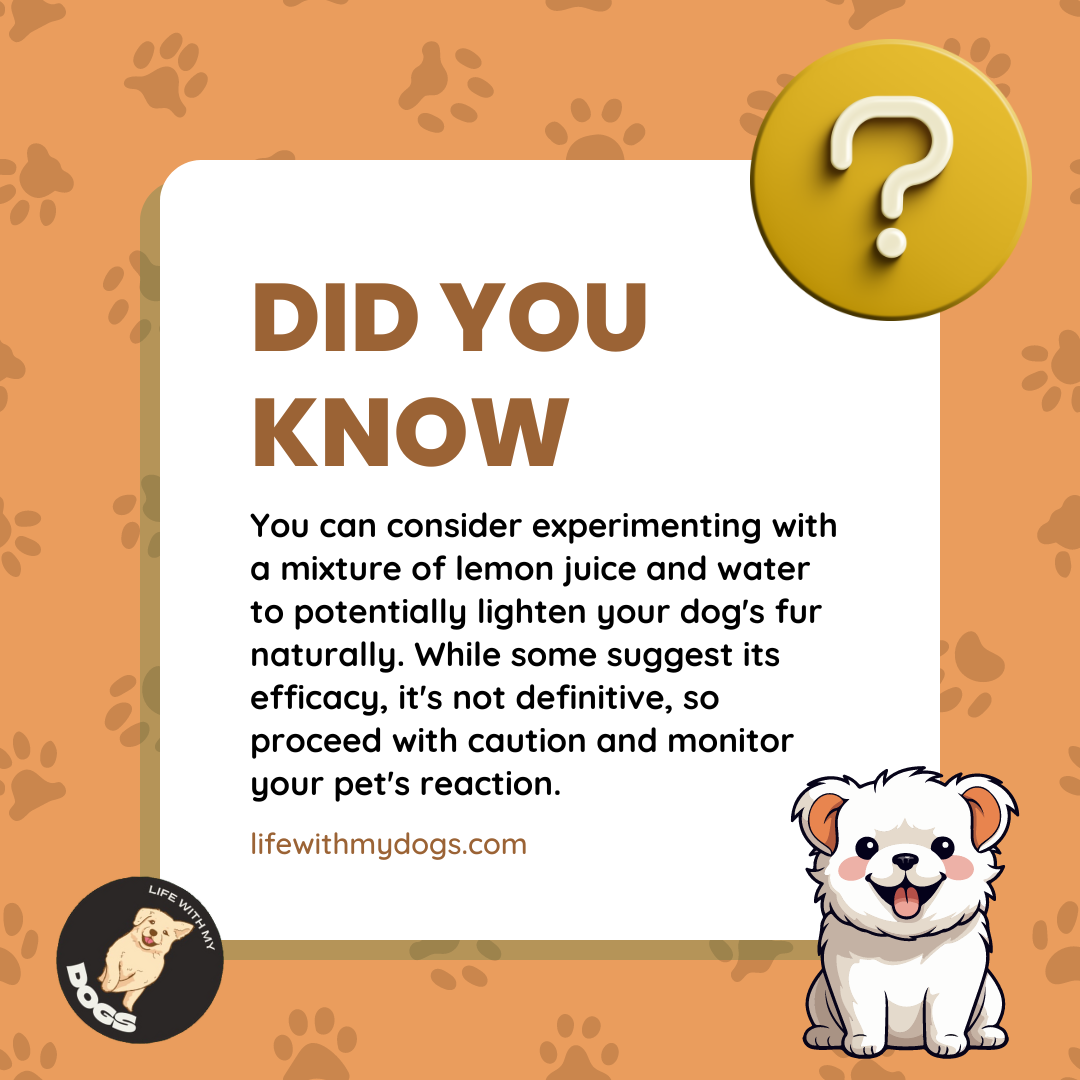
Natural Whitening Agents
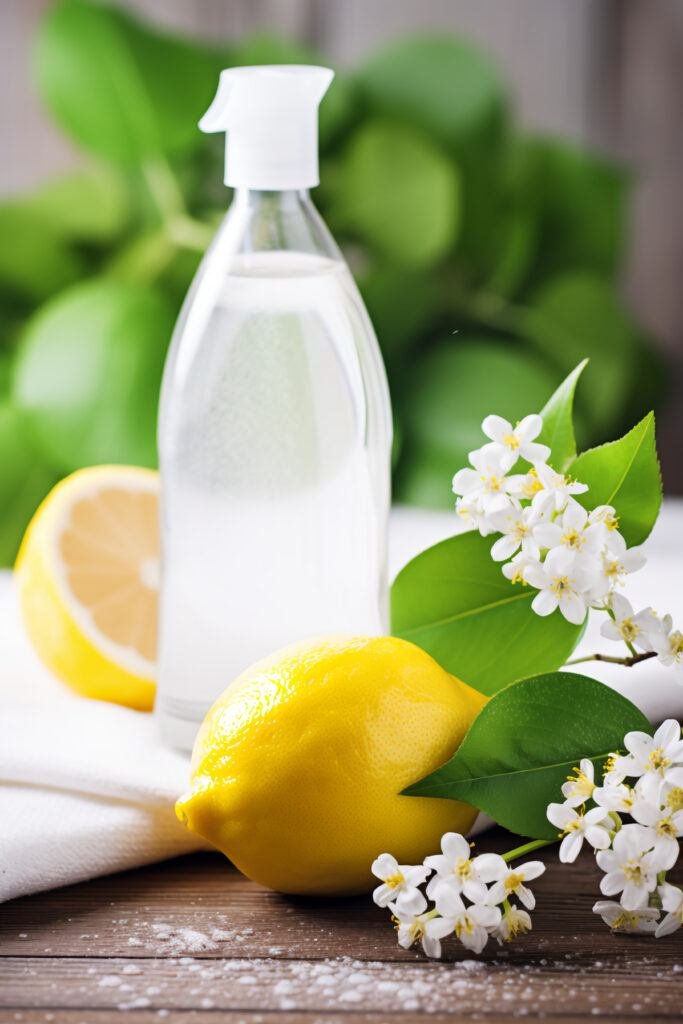
- Lemon Juice: Applying a mixture of lemon juice and water can lighten your dog’s coat. For a natural approach to whitening, try using lemon juice as a mild bleaching agent.
- White Vinegar: Mildly acidic, white vinegar can help remove dirt and stains from your dog’s fur. Dilute with water and apply to your dog’s coat to brighten the fur.
DIY Whitening Mixtures
Video Credit: @RescueDogs101
- Baking Soda Paste: A paste of baking soda and water can be effective for tougher stains. Simply apply it to the stain, let it dry, and then remove it with a damp cloth as described by Four Paws.
- Cornstarch: To absorb wetness and prevent tear stains, patting a small amount of cornstarch under your dog’s eyes is a practical tactic, as seen on Cuteness.
Professional Whitening Treatments
When seeking the brightest coat for your white dog, professional whitening treatments can provide more substantial and longer-lasting results than at-home options.
Whitening Services Offered by Groomers
Video Credit: @MalshiDog
Professional groomers often offer specialized whitening services that go beyond standard grooming. These may include:
- Blueing Shampoo: A treatment that uses optical brighteners to reflect light and enhance whiteness.
- Whitening Baths: A thorough bath using professional-grade whitening shampoos, such as those that remove yellow stains and brighten fur for weeks.
- Deep-Conditioning Treatments: These are typically used in conjunction with whitening shampoos to maintain coat health.
Safety of Professional Whitening Procedures
- Skin Sensitivity Assessment: Prior to any whitening service, a professional groomer should assess your dog’s coat and skin sensitivity to ensure the safety of the treatments used.
- Quality Products: Groomers utilize high-quality and pet-safe whitening products that are specifically designed for canines. This way, they avoid harsh chemicals that could damage your dog’s coat or skin.
Maintenance and Upkeep
To ensure your dog’s white coat stays bright and stain-free, routine maintenance and immediate attention to new stains are essential. Sticking to a grooming schedule and knowing how to handle spots will make a significant difference.
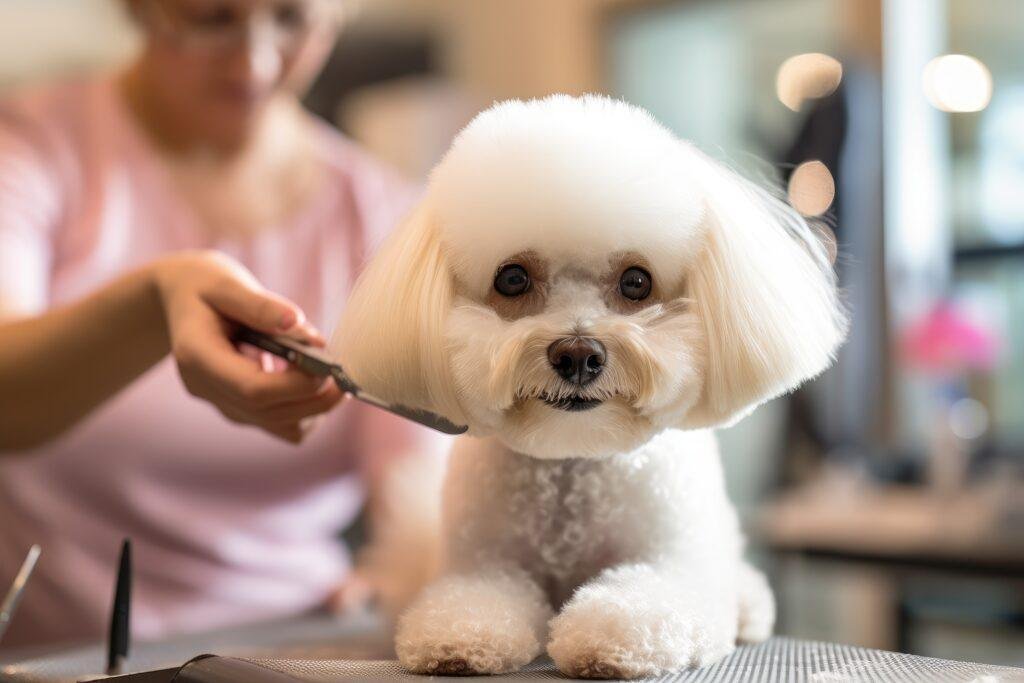
Regular Grooming Schedule
- Weekly Brushing: Brush your dog’s coat weekly to remove dirt and prevent matting, which is particularly important for white coats as they can show dirt more easily.
- Monthly Bathing: Use a shampoo specifically designed for white coats, like Earthbath Brightening Shampoo, which can help in maintaining the natural brightness without harsh chemicals.
Spot Cleaning and Touch-Up Tips
- Immediate Attention: Clean any new stains as soon as possible to prevent setting, using a damp cloth for immediate blotting.
- Vinegar Solution: For tougher stains, you might use a solution of one part white vinegar to two parts water, applying it to the stained area. Be sure to rinse thoroughly after application to avoid skin irritation.
Preventing Yellowing and Stains
Maintaining your dog’s white coat requires preventive measures to combat yellowing and staining before they happen. Paying attention to your furry friend’s environment and activities is key.
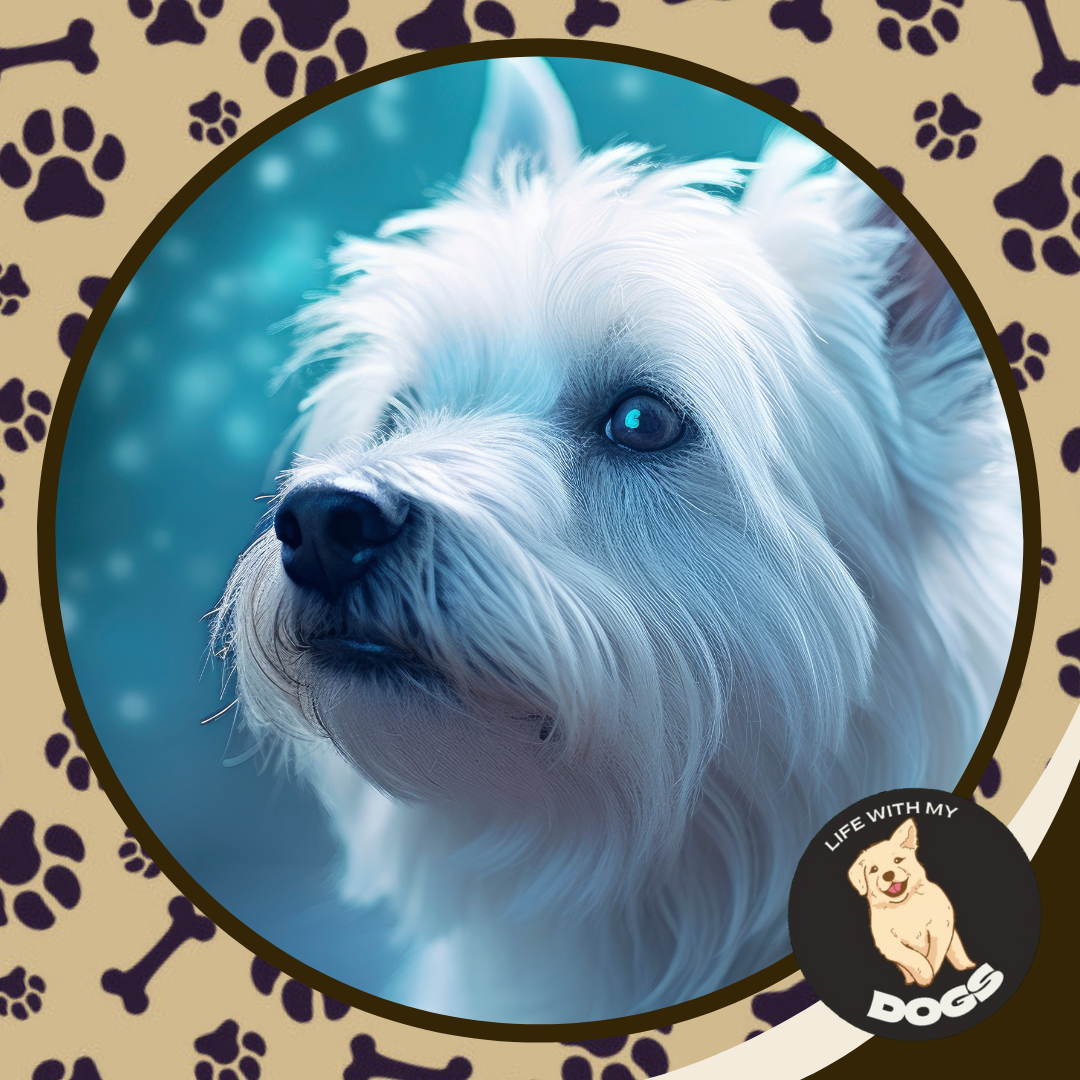
Managing Environmental Factors

To protect your dog’s white coat from yellowing, be mindful of their resting and play areas. Keep bedding and favorite resting spots clean to avoid dirt buildup, which can lead to staining of the fur.
- Indoors: Regularly wash your dog’s bedding using a gentle, pet-safe detergent.
- Outdoors: Limit access to areas with mud, red clay, or freshly cut grass.
Protective Measures for Outdoor Activities
Taking preventive actions during outdoor activities is crucial for keeping your dog’s white coat pristine.
- Before Playtime: Apply a thin layer of a pet-safe protective balm to your dog’s coat. This can create a barrier against dirt and stains.
- After Playtime: Rinse your dog’s coat with water to remove any immediate dirt or debris that could lead to staining.
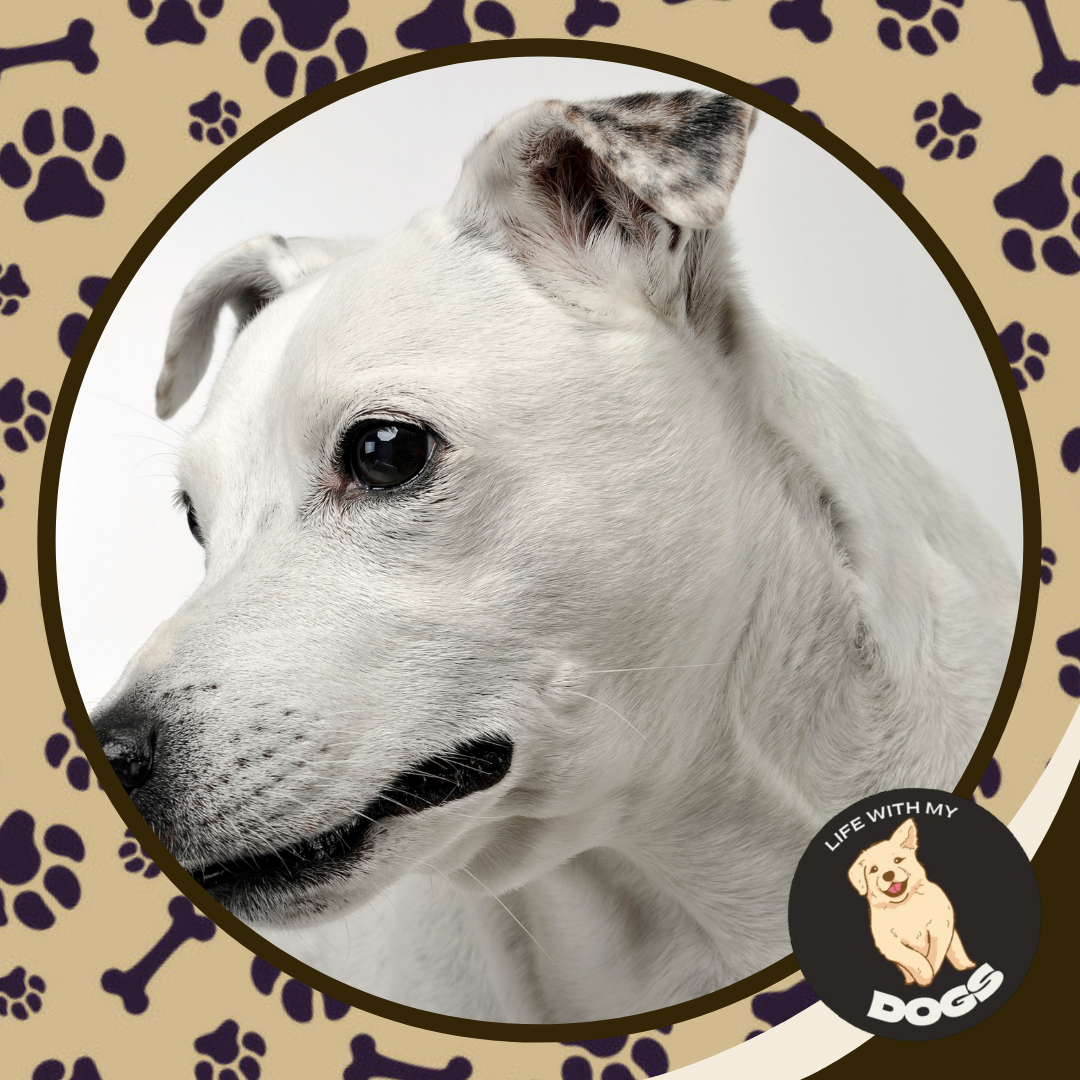
Now, armed with these valuable tips, it’s time to put them into action and witness your dog’s coat transform into a radiant symbol of health and beauty. Remember, consistency is key, so stick to your grooming routine and dietary adjustments. Trust me, the payoff will be worth every moment of effort.
Video Credit: @MalteseAngels
Frequently Asked Questions
Keeping your white dog’s coat clean and bright requires specific care and attention. Here are the most targeted ways to address common concerns regarding the maintenance of a white coat.
How can I naturally lighten my dog's white fur?
To naturally lighten your dog’s white fur, consider using a dog shampoo formulated for white coats. This can help remove stains and enhance the fur’s natural brightness.
What are safe methods for removing stains from my white dog's coat?
Safe methods include using a damp cloth to blot out stains or a homemade solution of white vinegar and water. Be sure to rinse thoroughly after application to avoid skin irritation.
Can baking soda be used to whiten my dog's fur, and how should it be applied?
Yes, baking soda can be used as a natural whitening agent. Create a paste with water, apply it to the fur, let it sit briefly, and then rinse. Always patch test first to ensure it does not irritate your dog’s skin.
What is the best way to treat discoloration around my dog's mouth area?
Carefully wiping your dog’s mouth with a soft, damp cloth after meals can prevent stains. For persistent discoloration, you can use specially formulated wipes or a gentle cleaning solution, ensuring that none of the product is ingested.
Are there any home remedies for whitening a dog's fur without harming it?
Home remedies such as a diluted apple cider vinegar rinse or a baking soda paste can help with stain removal. However, make sure to use them sparingly to avoid altering the fur’s pH balance.
Is it safe to use hydrogen peroxide for whitening my dog's white coat?
Hydrogen peroxide can be used with caution. It should be diluted properly. Also, avoid contact with eyes and other sensitive areas.
However, it’s usually safer to opt for products specifically designed for dogs. This can prevent any potential skin damage.
Find Out More


